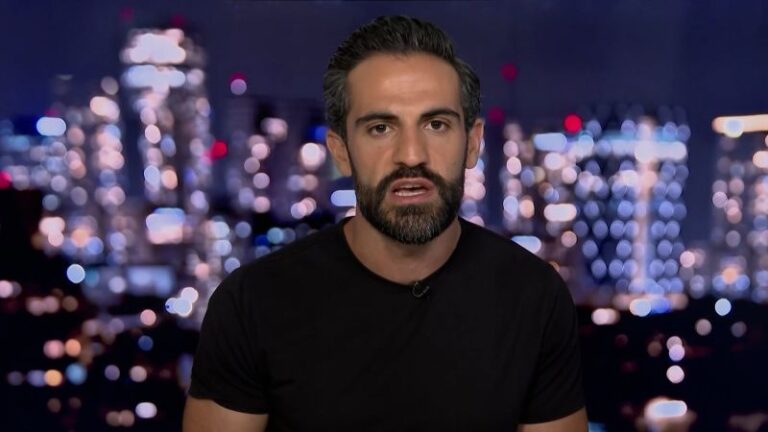Turkish police arrested at least four cartoonists on Monday, accused of creating and distributing a controversial cartoon that authorities and protesters claim depicts the Prophet Mohammed and Moses. The cartoon, published in a political satire magazine, portrays what appears to be a Muslim and a Jewish man, both with wings and halos, shaking hands as bombs fall below. The image went viral on social media four days after its publication, sparking widespread protests.
Hundreds of demonstrators gathered on Istanbul’s main tourist street, chanting “Allah is Great” and demanding the implementation of sharia law. Turkish authorities swiftly condemned the magazine, with Interior Minister Ali Yerlikaya labeling the cartoon a provocation and asserting that those responsible “will be held accountable before the law.” Yerlikaya emphasized that the cartoon was not protected by freedom of expression or speech.
Government Response and Legal Action
Fahrettin Altun, head of communications for the Turkish Presidency, described the cartoon as a “vile attack on our beliefs and values.” In response, the Justice Ministry launched an investigation under Article 216 of the Turkish Penal Code, which addresses the crime of “publicly insulting religious values.”
The weekly political satire magazine LeMan, known for its irreverent comics akin to French Charlie Hebdo, issued a statement clarifying that their cartoon did not depict the Islamic prophet. “This cartoon is not a caricature of the Prophet Mohammed (pbuh). In the work, the name Mohammed is fictionalized as belonging to a Muslim person killed in Israel’s bombardments,” the magazine explained.
“There are more than 200 million people named Mohammed in the Islamic world. The work does not refer to the Prophet Mohammed in any way,” LeMan stated.
The magazine insisted that the cartoon aimed to highlight the plight of oppressed Muslims, without any intention of belittling religious values. “To interpret the cartoon in such a way requires extreme malice,” they added, while apologizing to any offended readers.
Public Outcry and Arrests
As protests intensified, the Interior Ministry released videos of cartoonists being detained in their homes, barefoot and handcuffed by police, with captions declaring, “You will not escape from our security forces or from justice.” Protesters were seen attempting to enter the magazine’s offices in central Istanbul. In one video, a demonstrator shouted, “For our Prophet, we would give our lives and take lives; no one can insult our Prophet.”
Within hours, Istanbul’s governor Davut Gul announced that all four individuals wanted in connection with the cartoon were in police custody. Gul did not confirm if any demonstrators were detained but noted, “It has been determined that some individuals mingling among the protesters have engaged in provocative actions. It is of great importance that the protesting groups disperse to prevent harm to our citizens and to maintain public order.”
Historical Context and Ongoing Tensions
This incident is reminiscent of previous controversies surrounding depictions of the Prophet Mohammed, which have often led to significant unrest in various parts of the world. The 2005 publication of cartoons in a Danish newspaper, for example, sparked global protests and violence, highlighting the sensitive nature of religious depictions in media.
Experts suggest that such incidents underscore the ongoing tension between freedom of expression and respect for religious beliefs. According to Dr. Selim Kuru, a professor of Turkish studies, “These events often reflect deeper societal divides and the struggle to balance secularism with religious respect in a rapidly changing world.”
“The challenge lies in navigating these complex issues without inciting violence or infringing on fundamental freedoms,” Dr. Kuru added.
Looking Ahead
As some groups call for further protests against the magazine, authorities are urging calm and emphasizing the importance of maintaining public order. The situation remains fluid, with potential implications for Turkey’s broader approach to freedom of expression and religious sensitivity.
This is a developing story, and updates will follow as more information becomes available. The world watches closely as Turkey navigates this delicate situation, balancing its commitment to freedom of expression with the need to respect religious sentiments.
























